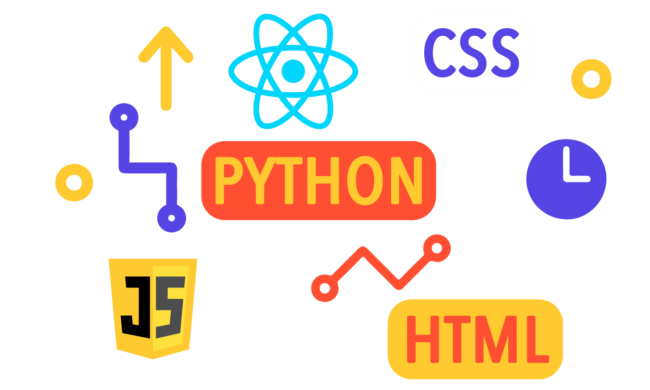
Suitable for you
-
Chapter 2 : Fundamentals of Web Development
Fundamentals of Web Development is a course designed to provide an introduction to the technologies and skills needed to build and maintain websites. The course covers topics such as HTML, CSS, and JavaScript, as well as responsive design, web accessibility, and web security. Students will also learn about different tools and frameworks commonly used in web development, and will have the opportunity to build their own websites through hands-on projects. This course is suitable for beginners or those with some programming experience who are interested in pursuing a career in web development. By the end of the course, students will have a strong foundation in web development and be able to build and maintain their own websites.
-
Chapter 3 : Back-End Development
Back-End Development is a course designed to provide an introduction to the technologies and skills needed to build and maintain the back-end of web applications. The course covers topics such as server-side programming languages (e.g. Python, Ruby, Java), database design and management, and API development. Students will also learn about different frameworks and tools commonly used in back-end development, and will have the opportunity to build their own back-end systems through hands-on projects. This course is suitable for those with some programming experience who are interested in pursuing a career in back-end development. By the end of the course, students will have a strong foundation in back-end development and be able to build and maintain the back-end of web applications.
-
Chapter 4 : Agile Software Development
Agile software development is a project management approach that focuses on delivering small increments of working software throughout the development process. It is characterized by the following values and principles, as outlined in the Agile Manifesto: Individuals and interactions over processes and tools Working software over comprehensive documentation Customer collaboration over contract negotiation Responding to change over following a plan In agile development, teams work in short, iterative development cycles called "sprints," which usually last one to four weeks. During each sprint, the team selects a set of high-priority features to work on and then develops, tests, and integrates those features into the overall software product. This allows teams to quickly deliver new functionality to users and to gather feedback early in the development process, which can be used to refine and improve the product. Agile software development is often associated with lightweight methodologies such as Scrum, Lean, and Extreme Programming (XP). These methodologies provide a framework for teams to follow, but they also encourage flexibility and adaptability, allowing teams to tailor their approach to fit the specific needs of their project.
-
Chapter 5 : Software Testing and Quality Assurance
Software testing is the process of evaluating a software product or system to determine whether it satisfies specified requirements and to identify any defects. The goal of testing is to find as many defects as possible, so that they can be fixed before the software is released to users. There are many different types of testing, including unit testing, integration testing, system testing, and acceptance testing. Each type of testing focuses on a different aspect of the software and serves a specific purpose. For example, unit testing verifies that individual components of the software are working correctly, while acceptance testing ensures that the software meets the needs of the end user. Quality assurance (QA) is the overall process of ensuring that the software meets certain quality standards and is fit for its intended purpose. This includes activities such as reviewing requirements, designing test cases, and performing testing. QA is often confused with testing, but it is actually a broader concept that encompasses all activities related to the quality of the software. Together, testing and QA play a crucial role in the software development process, helping to identify and fix defects, improve reliability, and ensure that the software meets the needs of the user.
-
Chapter 6 : Capstone Project
A capstone project, also known as a capstone experience, is a culminating project that represents the completion of a software engineering bootcamp or degree program. It is a opportunity for students to apply the knowledge and skills they have learned to a real-world problem or challenge, often in the form of a large-scale software project. The capstone project is typically designed to be a collaborative, team-based project that allows students to work together to solve a complex problem. It may involve the development of a new software application or the integration of multiple systems, and may be completed as part of a live consulting project for a client. The capstone project is an opportunity for students to demonstrate their ability to apply the principles of software engineering in a practical setting. It is also an opportunity for students to showcase their skills and abilities to potential employers, as the capstone project is often a key component of a software engineering portfolio.
-
Chapter 1 : Introduction to Software Engineering
Introduction to Software Engineering is a course designed to provide an overview of the field of software engineering and the skills and knowledge needed to be a successful software engineer. The course covers topics such as the software development life cycle, agile methodologies, version control, testing and debugging, and software design patterns. Students will also learn about different programming languages and technologies and how to apply them in real-world projects. This course is suitable for beginners or those with some programming experience who are interested in pursuing a career in software engineering. By the end of the course, students will have a strong foundation in software development principles and be well-prepared to continue learning and building upon their skills.
Reviews
-
I recently completed the Full-Stack Software Engineering course here at 247codecamp and it was an amazing experience! The program was very well-structured and the instructors were knowledgeable and supportive. They provided a strong foundation in software development and helped me build the skills and confidence I needed to succeed in the field. The program also provided ample opportunities for hands-on learning and real-world projects, which really helped me apply what I learned in a practical setting. Overall, I highly recommend this software engineering bootcamp to anyone interested in pursuing a career in software development! It was an intense but rewarding experience and I feel much better prepared to enter the workforce as a software engineer.

Comments are closed.